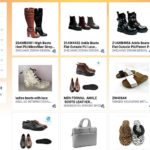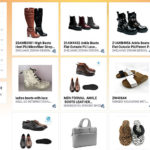That’s the Theme!
There is no doubt that the theme of sustainability is hot, very hot, that it cuts across many sectors and increases the attention span of consumers. The numbers down here (taken from the United Nations magazine “OurPlanet”) are significant, but even more compelling are the many company cases that increasingly work in favour of sustainability. To name just a few of the most recent examples, we can speak of Moncler, which presented its first budget and plan for sustainability a few months ago, by implementing a traceability protocol for all suppliers of feathers and an external auditing system. We can talk about the cosmetics sector of Cosmoprof: the Las Vegas edition of the fair hosted the setting of a special area dedicated to eco-friendly and natural companies in the world of beauty. We can name H&M’s green revolution, which in 2015 increased the use of sustainable materials by 6%, with a grow of eco-cotton by 10,2% and reduced emissions by 56%. And in this special edition dedicated to the sustainable footwear, you will find many other examples moving forward, meaning that an increasingly special attention is drawn to the theme, which results ethically, but also economically, crucial. Vance Bell, President and CEO of Shaw Industries, the world’s biggest producer of carpets, suggests to deal with the issue by taking into account some points:
«The lessons we learned can be applied to any manufacturing sector. Think about the products with their end in mind. This will help you maintain a holistic approach to the theme of sustainability. Be transparent, verify and validate your products from the point of view of sustainability. In this way, the approach of food industry applied to other products is winning and convincing. Innovate for the future. Pushing a company to undertake efforts towards a sustainability plan requires a particular focus on strategic innovation and continuous improvement. Change is unavoidable. As are technological progresses. Processes and procedures are evolving. New researches emerge continuously. Market expectations are moving. It is impossible to predict the future, but if we want to keep on moving in the right direction, we must innovate and continually be seeking ways of improvement».
An investment, the one in sustainability, which also brings an outcome. According to a Nielsen research, 55% of online consumers from 60 countries, in fact, are willing to pay more for products made by companies, which put a major focus on themes of social responsibility. This attitude is stronger in countries of the Asia-Pacific region (64%), Latin America (63%) and Middle East/Africa (63%). North America and Europe stop respectively at 42 and 40 per cent.
FOCUS ON GREEN FASHION
WOODY At the core of the Sittersdorf-based company (Austria), is a patent for a flexible willow sole for men’s, women’s and children’s sandals and shoes. Since 1920, the year Woody was established, the focus has been on the wellbeing of feet, with advanced studies on ergonomics and wearability, as well as treatments with natural substances to make them resistant to the weather and wear-and-tear.
GRAND STEP SHOES The origin of materials and their quality is the core philosophy behind the German brand: rubber for the men’s, women’s and children’s boots comes from Europe, hemp from India, jute and fabric for the espadrilles and sandals range come from Spain, and they’re always in line with the principles of fair trade. This fresh, modern design is entirely ‘Made in Germany’.
DUCKFEET Established in Denmark in 1975, the company proposes not only seasonal collections but also a continual range of models with a minimalistic design. They use Scandinavian leathers, which are processed to make them resistant to wear-and-tear using chrome in pre-tanning while the rest of the procedure is carried out with vegetable products, but always in line with the principles of sustainability. The hand craftsmanship of Duckfeet footwear also means exclusivity, because no two pairs are ever the same.
JOHN W. SHOES The German company proposes three different brands, which are all the result of an in-depth study of design and materials: from the chrome-free John W. Shoes range, the young and dynamic 1608 Jonny range, right the way through to the highly popular Jonny’s Vegan collection. The company also really focuses on communication and its presence at international footwear shows (for example, they’re at Micam in Milan and GDS in Düsseldorf) to provide a variety of different options for buyers in search of truly green products..
NAE Vegan Since its launch in 2008, the Portuguese brand (acronym for ‘No Animal Exploitation’) only use materials of non-animal origins, in complete respect for the environment and nature. NAE has developed its wide range of ethical footwear using cork, ecological microfibers and now Piñatex, a natural material made of pineapple fibers (by-products from the food industry), which can be used as an alternative to textiles and leathers. The brand poses itself as an alternative not only for those seeking quality Portuguese shoes with a high fashion content, but also for those who want a product that respects the planet.
WERNER 1911 Based in the Pirmasens footwear district, the German company produces sneakers, slip-ons and sandals using the very best materials and chrome-free leathers. They are also proud members of the International Association of Natural Textile Industry (IVN), an international body that certifies over 90 companies dedicated to the principles of social and environmental responsibility.
ALINA SCHUERFELD Deep in the heart of this Hamburg-based designer is a sustainable project for a collection made with chrome-free, vegetable or rhubarb-based tanning processes, which allow for the creation of a trendy colour palette for pumps, mules and boots. Among the various materials used is certified eco-salmon and leathers from Germany and Italy, whereas the espadrilles are made of Tyvek® and produced in Spain; this synthetic material, which has a similar appearance to paper, is in reality tear-proof, resistant to many types of acids and chemical bases, breathable but waterproof, non-toxic and recyclable.
ULTRASHOES For this Portuguese brand, it’s not just about upcycling rubber soles, vegan, biodegradable collections or light cork for sneakers, it’s about ‘circular economy’ shoes. This innovative project foresees the creation of footwear that is easy to disassemble at the end of its lifetime, so it can then be recycled or composted. The designs also come complete with recovered soles, made of recycled leather from car seats; the stitching is glue-free, with no metallic parts, and the shoes cost 10 to 20% less than a normal pair. In fact, most of the components are more economical and by eliminating the gluing process of the sole, the impact of energy use is significantly reduced.











